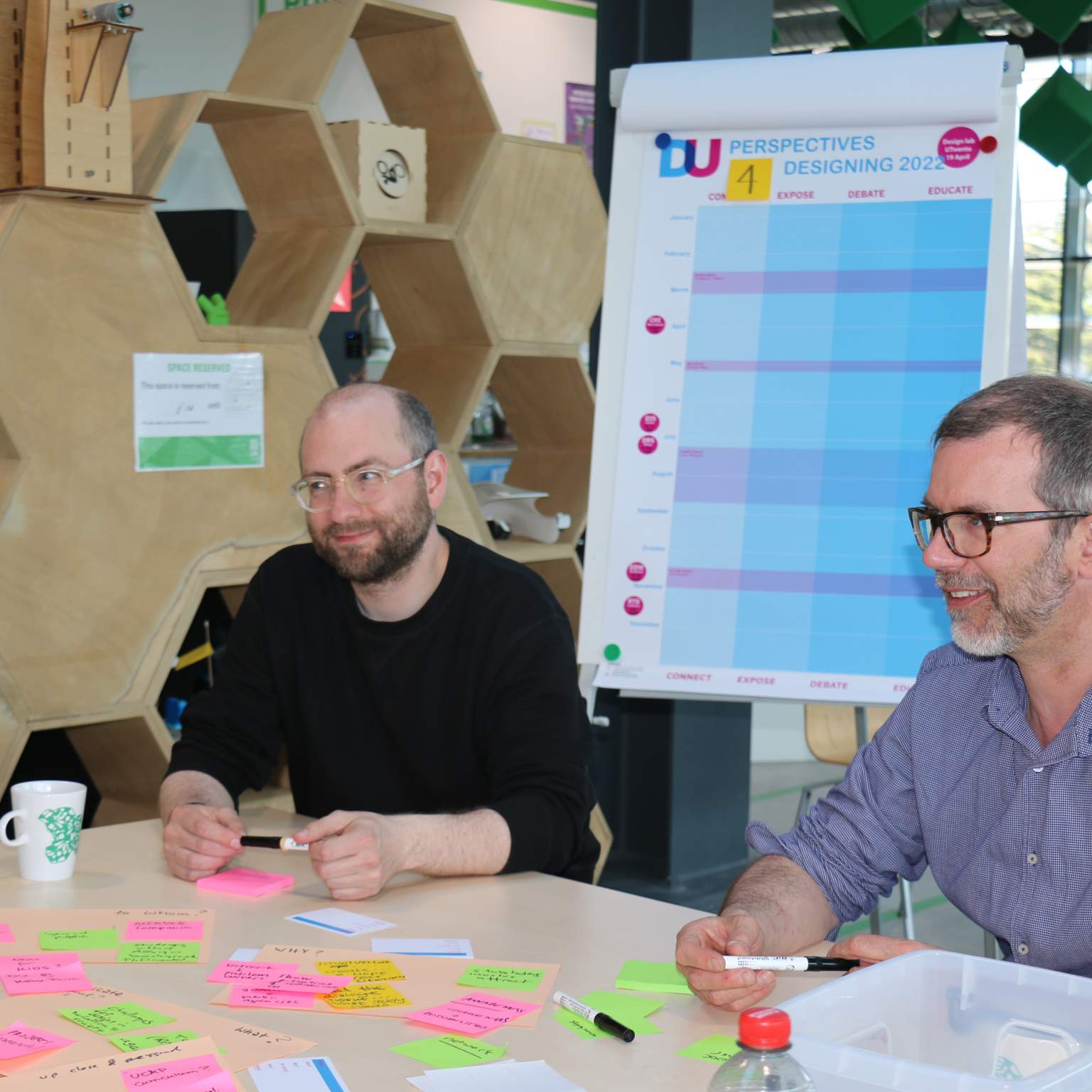Thanks to the joint effort of our Design United researchers, we have come up with a beautiful and relevant set of 5 contemporary themes to ignite this year's debate around academic design research. These themes will be used for our participation in the Dutch Design Week and will be illustrated with design research projects at our Design Research Programme and EXPO, during the Dutch Design Week.
Check the themes below:
1 More than Human Design
We entered an eco-age, which spans and traverses the social, natural, and artificial. How can we create value for future habitats that are natural for the ‘life’ and growth of humans and nonhumans? Can design be at the heart of such ecosystems? How can we manipulate leverage points that affect all within the system? Which collaborations and ways of thinking are needed to shift towards decentralizing the human? In this theme, we move from human-centered design to more than human design.
2 Futuring
Design is a future-oriented practice. Ways to envision the future, speculate and reflect on it, and even to rehearse what it may feel like to inhabit alternative futures, are all critical components of the designer's toolkit. As the fate of our planet lies in the balance, the ways design shapes our futures – the kind of relations, experiences, meanings, and behaviors it forms – need to be explored, problematized, and reoriented. We need to figure out, collectively, where opportunities for responsible innovation lie, and help society move forward in respectful, responsible, and exciting new ways.
3 Politics of Design
What is the relationship between design, power, and social justice? How do designers navigate the complex intersections of social structures, cultural differences, biases, stereotypes, and domination? Is design equipped for collective liberation and ecological sustainability? Can design really aim at social good and if so, how does it change the way we practice design? This theme welcomes epistemological and methodological discussions as well as focuses on projects on social justice, power, agency, and politics of design.
4 Entanglements with AI
Artificial Intelligence (AI) will be fundamentally shaping our future societies. It is therefore of great importance to understand AI as a design material. Not only as computation but also as a technology that can transform everyday activities and experiences and transform design practice itself. Questions we would like to ask are, how designers can productively engage and work with AI? How can this be done collaboratively with relevant stakeholders who engender multiple perspectives and levels of understanding? And lastly, how to do so in responsible and ethical ways.
5 Neo Craftsmanships
While critical debates on the future directions of design are in full swing, crafters of advanced enabling technologies have already started to make the new everyday a reality; the crafts of tomorrow are taking shape today. Deepfake digitalisations are out in the wild, shape-changing food designs are served in top restaurants, and smart materials to weave sustainable fabrics. Many more emergent key technologies are ready to become the design materials of the future. In this theme, we focus on the question of how new craftsmanships emerge in current design practice.




